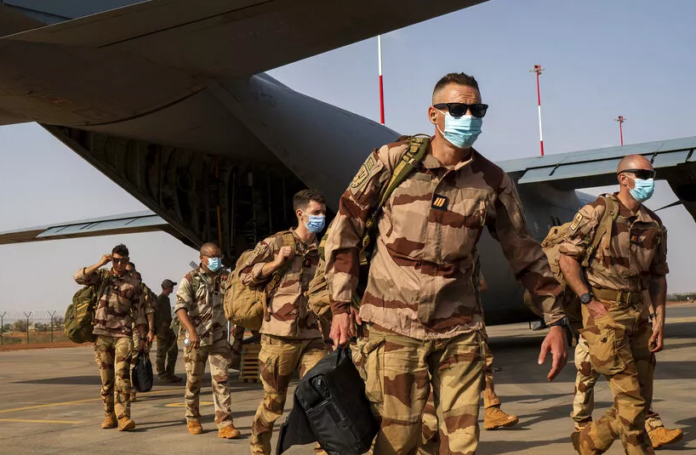France Pulls Out Last Troops From Niger
The last French troops withdrew from Niger on Friday, in the latest blow to more than a decade of French anti-jihadist operations in West Africa’s Sahel region.
France announced it would pull out its roughly 1,500 soldiers and pilots from Niger after the former French colony’s new ruling generals demanded they depart following a coup on July 26.
It was the third time in less than 18 months that French troops were sent packing from a Sahel nation, after fellow former colonies Mali and Burkina Faso following military takeovers.
All three nations are battling a jihadist insurgency that erupted in northern Mali in 2012 and spread, but their relations have nosedived with France since a string of coups in the region.
The last French soldiers took off from an airbase in the capital Niamey aboard two aircraft, according to an AFP journalist. Their destination was unclear.
“Today’s date… marks the end of the disengagement process of French forces in the Sahel,” said Niger army lieutenant Salim Ibrahim.
Some 1,000 French troops remain in neighbouring Chad, where France has based its Sahel anti-jihadist operations, but now no longer have a presence in the three main countries battling the extremists.
Ibrahim said the pullout from Niger, which started in October, included 145 flights and 15 ground convoys in total.
The French military told AFP that no equipment was abandoned, but buildings had been left in place.
French President Emmanuel Macron announced in September the withdrawal of all French troops from Niger by the end of the year.
Most French troops in Niger had been stationed at the air base in Niamey.
Smaller groups were deployed alongside Nigerien soldiers to the border with Mali and Burkina Faso, where jihadist groups linked to the Islamic State group and Al-Qaeda are believed to operate.
The withdrawal was a complex operation, with road convoys having to drive up to 1,700 kilometres (1,000 miles) on sometimes perilous desert routes to Chad.




